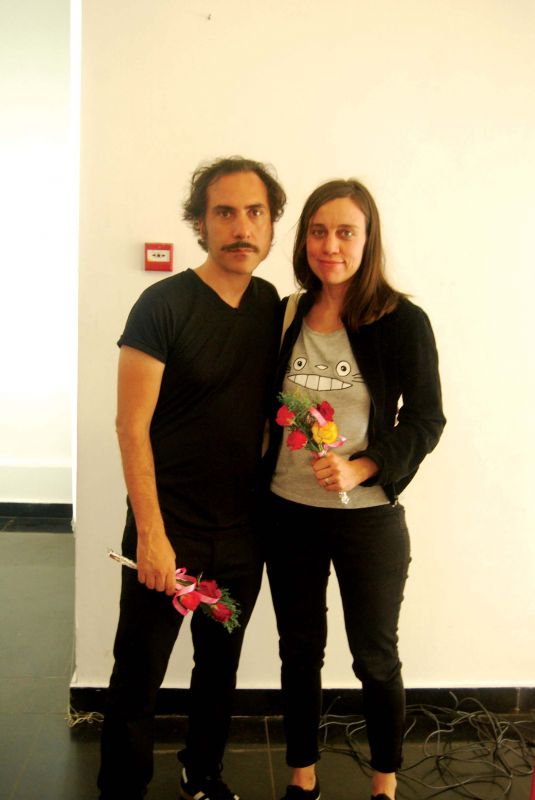Love in the time of disappearance'
There is not a lot of difference between a democracy by the rightwing and a dictatorship'.

Thiruvananthapuram: A love story can tell so much. Cheesy is only part of it, the frowned upon, tiring, and sometimes embarrassing part. But there are stories, his story and her story, of the background they fall in love, of the people they touch. Or else, there is a larger story in the background and a love story is perhaps the best way to convey that. Argentinean director duo Ernesto Ardito and Virna Molina does that to talk about a country and its many young ones that ‘disappeared’ forever over four decades ago. They tell it through the film, Symphony For Ana, selected for competition at the 22nd IFFK in Thiruvananthapuram.
Ernesto and Virna stand at Tagore Theatre and claim their English is poor. But in clear words they echo the emotion that inspired this film, one of the many they make together, beginning with the most popular ‘Raymundo’, a documentary on the disappearance of the Argentinian filmmaker, Raymundo Gleyzer. He too had disappeared in the 1970s during the last Argentina military dictatorship. “Our childhood is full of these dramatic memories, of violence and silence,” Ernesto says in broken English and calls Virna to complete his lines. She says, “It is important to understand what happened in the 1970s because that is the key to understand the past and the future of Argentina.
 Argentinean director duo Ernesto Ardito and Virna Molina
Argentinean director duo Ernesto Ardito and Virna Molina
“Many people who should have been the leaders of today, died in the 1970s. We couldn’t become the country that we could have, because they ‘disappeared’. The things they fought against still exist. There is not a lot of difference between a democracy by the right wing and a dictatorship.” Symphony for Ana starts innocently as the recording one friend makes for another, Ana for Isa, about ‘their obsession to fall in love’ as teenage girls. But then Ana talks of all the burning that ‘they’ did. You don’t realise who till the film proceeds. Agitated students – Peronists (followers of the political ideology of former Argentinian president Juan Domingo Peron) - gather in the National High School of Buenos Aires to talk about the danger of the rightwing fascist forces coming, about protecting their dean from being dismissed.
They decide to take over the school and succeed in it, Ana and Isa, part of it all. Along the way Ana falls in love, with Lito, a boy other Peronists label ‘Chinese’ because of his Maoist views and advise her to stay away from. A confused Ana, who doesn’t know if she is ready to make love as Lito wants her to, stays away even as she loves him. Soon, ‘they’ attack the school, sending off students they didn’t agree with, killing some, making a few ‘disappear’. Camilo comes in between, as part of the leftist team that Ana had joined and they have a brief relationship. “We must do films like these to bring to the present the memory of the people who fought for freedom. Even now there is repression against the workers. They have so far left the intellectuals, the filmmakers alone. But then journalists with opposing views have been fired,” Virna says. To a question someone asks about Pope Francis who hails from Argentina, she says, “He could have done a lot to find out about the missing people, but he did nothing.”

